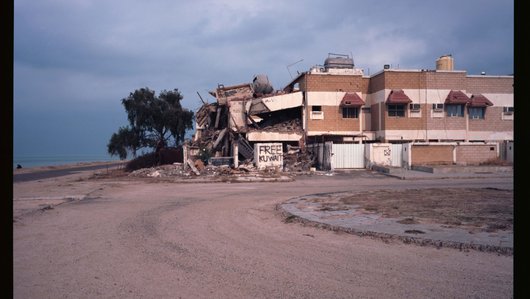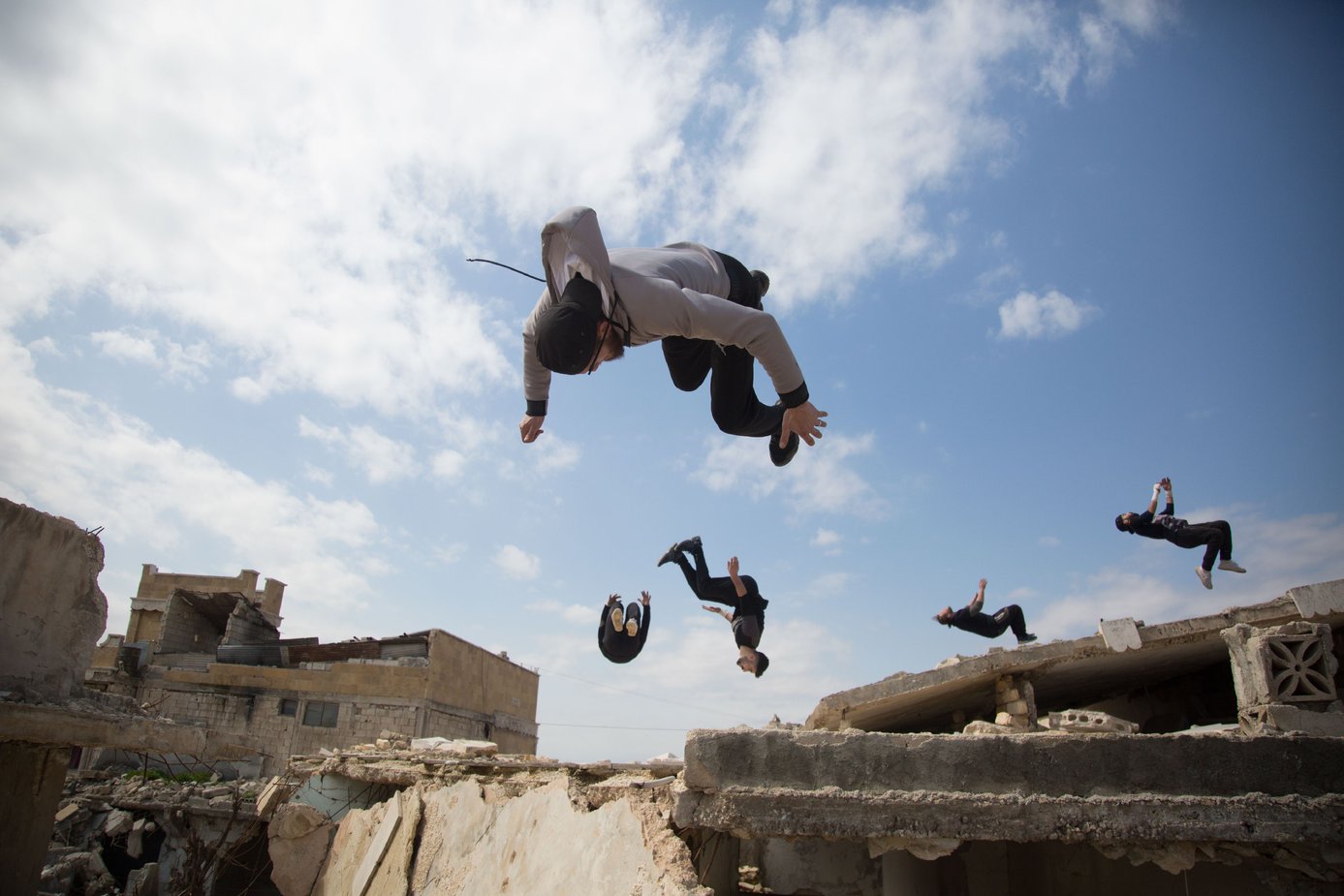
Sheikh Saoud Al Thani Project Award 2023
We are thrilled to announce the eight winners of the 2023 Sheikh Saoud Al Thani Project Award grants –Maeen Aleryani, Mohammed Alkouh, Sarah Benamar, Amina Kadous, M’hammad Kilito, Tamara Saade, Mustafa Satkin, Ali Haj Souleiman,
The jury for this third year of Tasweer’s annual grant was Sueraya Shaheen (photographer and editor); and Zeina Arida (Director, Mathaf: Arab Museum of Modern Art, Doha), Dr Aissa Deebi (Director of Painting and Printmaking, VCUQ), along with Tasweer’s Artistic Director Charlotte Cotton and Senior Curator Maryam Hassan Al-Thani. They reviewed applicants’ proposals and held meetings in January 2023 before selecting the awardees.
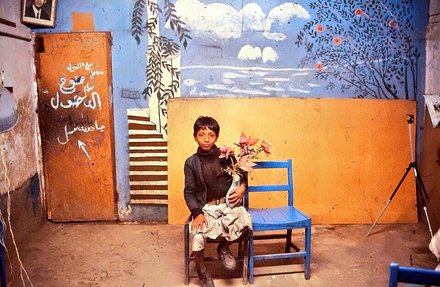
Maeen Aleryani
Maeen Aleryani is a visual artist and photographer based in Sana'a, Yemen. Inspired by his immediate surroundings and culture, he documents the lives of the community of Sana’a. His projects include the Goethe Institute-supported The Light In-Between and Invisible Connections in 2021, supported by UNESCO and the European. He aspires to explore photography as a tool for personal expression and to draw our attention into the lives of others.

“ My current research project aims to equip a mobile studio that restores visual memory. In the act of making a photograph together, we stop time, and retrieve our memories, nostalgia and emotions. ”– Maeen Aleryani
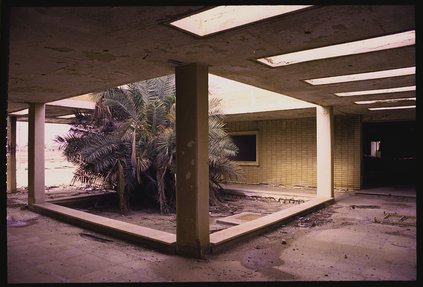
Mohammed AlKouh
Mohammed Alkouh is a visual artist, whose work encompasses analog photography, drawings, archival materials, and hand-colored black and white photographs. Alkouh finds himself continually returning to the liminal space in-between the past and present - where his imagery is cast against a transient reality. his solo exhibitions include Tomorrow's Past at the Contemporary Art Platform (CAP), Kuwait (2014); Four Hands Can't Clap at Sultan Gallery, Kuwait (2015). Group exhibitions include the 17th International Architecture Exhibition of la Biennale di Venezia - Kuwait Pavilion (2021). In 2022, Alkouh joined a residency at Misk Art Institute in Riyadh, Saudi Arabia, where he went extensively with his research on his personal story about the 1990 Iraqi invasion of Kuwait.
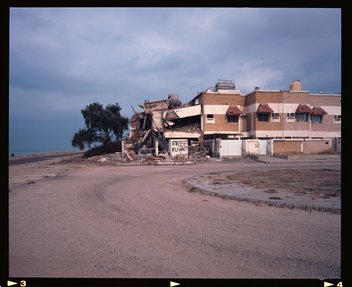
“ The moment I disembarked from the ferry and onto the Failaka Island, I felt that I traveled back in time to my Kuwait; it felt like home. Since the invasion of 1990, time has stood still on the island. Inhabitants had to evacuate and now the abandoned houses tell their stories. They are merging with landscape. Trees have surrounded doors in an attempt to protect them. I documented all the houses on Failaka Island with the hope that 100 years from now, the great-grandchildren of anyone who lived on the island can see where their family once lived - something I long for myself. ”– Mohammed AlKouh
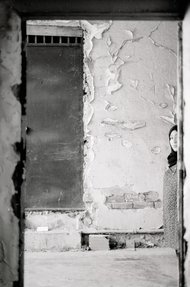
Sarah Benamar
Born in 1994, Sarah Benamar started documenting her surroundings when she received her first compact camera aged 17. She continued photography throughout her student years, documenting her experiences as she traveled and joined protests in the streets. Through her studies, she became interested in cinema from Algeria and the global South, and began to merge her interests in photography, literature, politics and philosophy. Benamar participated in the 13th edition of the residency ARTIFARITI, resulting in her photographic series Welcome to the Liberated Zone, followed by the first edition of the Derb Cinema Residency through which she directed her first short film, The Wasteland.
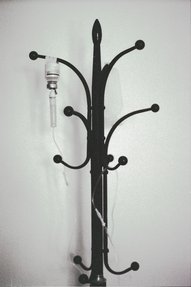
“ Sandcastles began in 2019 when I returned to Algeria after an eight year’s absence. On returning, I was faced by the impact of my grandmother’s Alzheimer’s upon her, mirrored in her immediate surroundings but also beyond and in the streets. There was a radical contrast between the absence of hope I was seeing close to me and being present in a moment of collective optimism – somewhere between ruination and nation-building. Photography is a fragmented medium replete with silences and it seemed to be the ideal tool with which to tell such a complex story. ”– Sarah Benamar
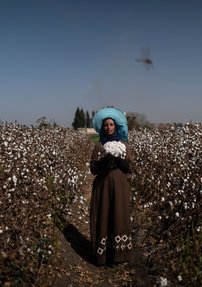
Amina Kadous
Amina Kadous is a visual artist based in Cairo, Egypt. Her practice emphasizes the ways in which a photograph is an object that holds memories and meanings and are keepsakes that give life. The exploration of time serves, for her, as a means for understanding personhood, memories and histories. Her work has been exhibited internationally: At the Photography Biennale of the contemporary Arab world at the Cite Des Arts, Paris. She also participated in at the 12th edition of the Bamako Biennale of Photography and being awarded the Centre Soleil d’Afrique Prize. She received grants from the Magnum Foundation and Prince Claus foundation. She was awarded the Contemporary African Photography Prize 2022 and Prix De La Photo Madame Figaro at Arles photography festival in 2022.
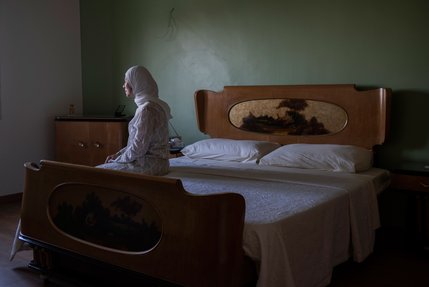
“ My grandfather’s house beamed with light and memories, reflecting the cotton threads that extend three generations back. Uprooted and extracted from the ground, I see myself reflected in the cotton’s journey. Drawing on the legacies of my grandparents, their archives, and my own country’s eroding history. Once a major symbol for our Egyptian identity and our cultural wealth, cotton ties us to our historical past. I try to reconnect and recollect what is left, what could have been, what could still be, and what have we lost. ”– Amina Kadous
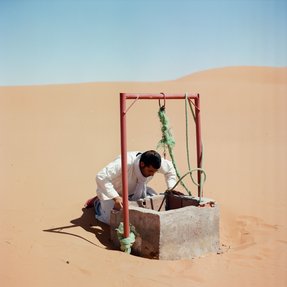
M'hammed Kilito
M'hammed Kilito is a documentary photographer based in Casablanca, Morocco. His work focuses on narratives that help us to understand the relationship between humans and their environments by covering issues related to cultural identity, the sociology of work, and climate change. His work has been shown at festivals and venues including Sharjah Art Foundation (Sharjah), 1:54 Art Fair (Paris), Tate Modern (London), National Museum of Photography (Rabat), Beirut Image Festival (Beirut), Photo Vogue Festival (Milan), Helsinki Photo Festival (Helsinki) and Breda Photo Festival (Breda) amongst others. His photographs have been featured in magazines and newspapers such as The Washington Post, The Wall Street Journal, British Journal of Photography, VICE and El Pais.
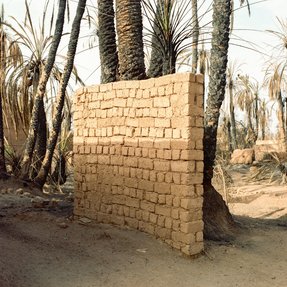
“ Over the last century, Morocco has already lost two-thirds of its 14-million palm trees that populate its biodiverse ecosystems of oases. Due to the considerable impact of high temperatures on their water resources, oases face extinction, displacing indigenous populations. Before It’s Gone is my long-term photography project that highlights the complex and multidimensional issues of oasis degradation in Morocco and the impact on its inhabitants. ”– M'hammed Kilito
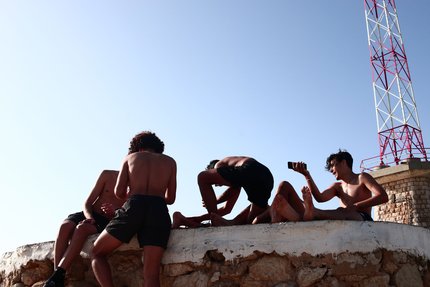
Tamara Saade
Born and raised in Lebanon, Tamara Saade is a journalist and photographer currently based in Beirut. Her writing and photographic projects concentrate on Lebanon's ever-changing political landscape. She has expanded her coverage of human rights to the US, following her 2-year residency in New York. She has worked with the The Washington Post, the UN, Vice, Al-Jazeera, and the Delacorte Review, amongst others. She has exhibited photographs in the US, France, UAE, Norway, and Lebanon.
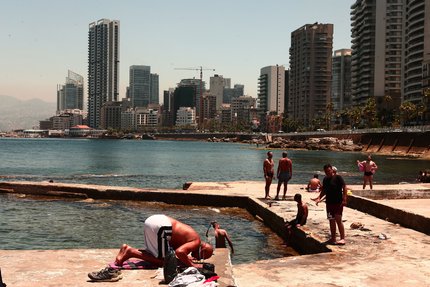
“ My project Shedding Skin focuses on one of the last public beaches in Lebanon. Set against the backdrop of political upheaval and social instability, my project speaks to the relationship the beach goers have amongst themselves, but also with the country. Shedding Skin is both an escape from reality, and a documentation of life under the sun. ”– Tamara Saade
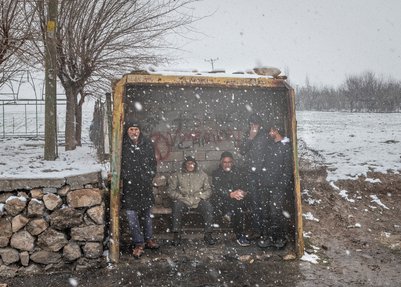
Mustafa Bilge Satkin
Mustafa Bilge Satkin started his photographic practice in 1995. He has earned a doctoral degree at Mimar Sinan Fine Arts University and has been working as an Associate Professor at the Faculty of Fine Arts, Marmara University since 2006. His photographic projects and assignments are taken in Iran, Afghanistan, Yemen, and Lebanon and have been published by Anadolu Agency, Middle East Images, Redux Pictures, and Getty Images. He is a member of Diversify Photo and works for the United Nations Development Program as a volunteer photographer. His photographs focus on social injustice, climate change, and migration as common problems for all humankind.
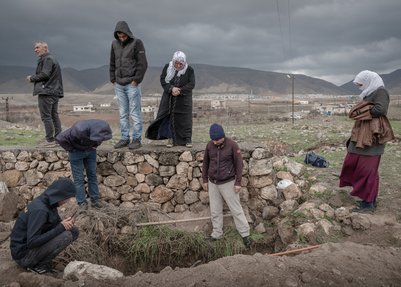
“ My project tells the story of people forced to abandon their ancestral city Hasankeyf, Turkey. Aligned with the state's water policies, the Ilisu Dam was constructed even though, historical and cultural heritage would inevitably be buried, its precious riverine habitat would be flooded, and people would be de-territorialized. With the dam being built, the region's people had to leave behind their homes, lands, memories, and cultural history. The most agonizing part of this process is that they also have to undig their loved ones' graves and carry their remains with them. ”– Mustafa Bilge Satkin
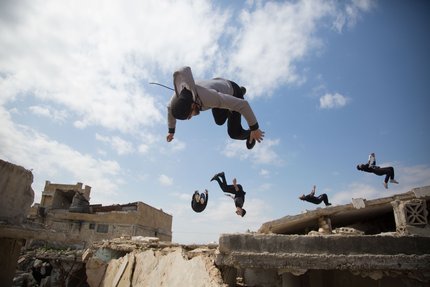
Ali Haj Suleiman
When Ali Haj Souleiman was 14 years old, Syrian regime forces arrested his father in Damascus.
His family returned to Idlib, and their original home. Souleiman stopped his studies and started working to support his family. In 2014, he participated in a photography archiving project and, in 2017, took up the camera. He has joined the ranks of media professionals documenting the suffering of the Syrians and the humanitarian violations against civilians, working as a freelance photographer with many newspapers and news websites such as Al Jazeera English and Middle East Eye.
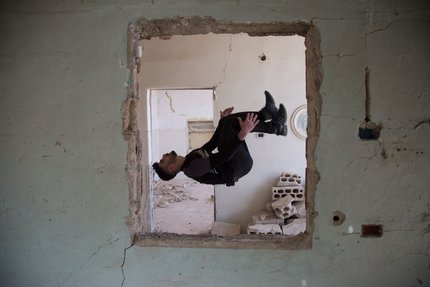
“ In clear defiance of the harsh conditions caused by the bombing and destruction by the regime and Russia, a group of young men are practicing the sport of parkour on destroyed buildings in northern Syria. The goal of playing parkour is to be rid of the atmosphere of war. For over a decade, it has been a part of them. Ahmad Sawas created the parkour team through social media, with exercise routines in an underground gym inside the cellars of Kafr Nuran. They hope to get out of the war through their talent in the parkour sport. ”– Ali Haj Suleiman
